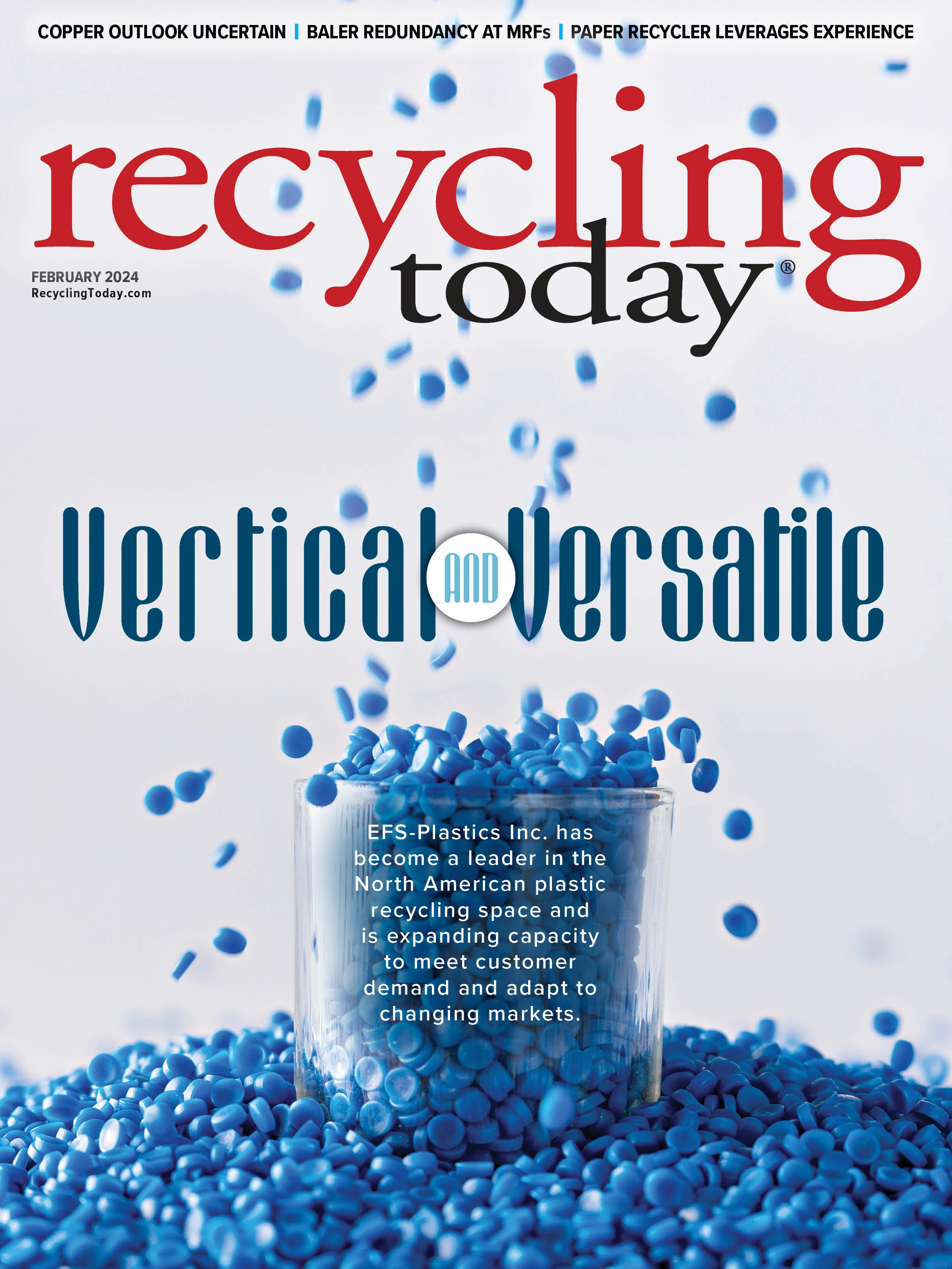In the United States’ recycled plastics market, supply is abundant, demand is flat and prices are low. The outlook didn’t change for most of 2023 and might not do so in 2024.
While different materials have seen occasional and brief upticks in demand and price over the last 12 months, overall conditions haven’t improved or returned to the highs achieved during the earlier stages of the COVID-19 pandemic. Some recyclers say the market took a turn for the worse as far back as the fall of 2022.
Making matters worse, low-priced virgin and off-spec resins have flooded the market, leaving recyclers in a tough spot.
As one recycler recently explained to me, the question is whether the price of recycled material is low enough to deal with the inevitable minor inconsistencies of postconsumer resin compared with virgin.
The plastics recycling industry, which plays such a vital role in keeping plastic out of the waste stream, could use more assistance from legislators to help level the playing field.
Even for large brands that have set goals to incorporate more PCR into their products and packaging by 2025 or 2030, cheap virgin plastic might be too tempting to pass up while it’s available.
Certainly, reclaimers can lean on the strong relationships they’ve built with customers to ensure the movement of their PCR, but it appears the plastics recycling industry, which plays such a vital role in keeping plastic out of the waste stream, could use more assistance from legislators to help level the playing field.
Four U.S. states—Maine, California, Colorado and Oregon—have passed extended producer responsibility legislation for packaging, with California, Colorado and Oregon currently in the process of shaping their rules. Additionally, Washington, Connecticut and New Jersey all have passed some form of recycled-content legislation for packaging. What all these laws have in common is that in the coming years, producers will need to increase the PCR in their products and packaging.
New Jersey’s recycled-content law, in particular, went into effect in January and sets PCR requirements for rigid plastic containers, plastic carryout bags, plastic beverage containers and plastic trash bags, with incremental increases established. By 2036, rigid containers sold in the state will need to contain at least 50 percent PCR, while beverage containers will need to contain at least 50 percent PCR by 2045.
These rules can help ensure recyclers have a seat at the table and the promise of a healthier market in the future. The more states that can get on board with mandating the circularity of plastics, the better for all.

Explore the February 2024 Issue
Check out more from this issue and find your next story to read.
Latest from Recycling Today
- Nucor receives West Virginia funding assist
- Ferrous market ends 2024 in familiar rut
- Aqua Metals secures $1.5M loan, reports operational strides
- AF&PA urges veto of NY bill
- Aluminum Association includes recycling among 2025 policy priorities
- AISI applauds waterways spending bill
- Lux Research questions hydrogen’s transportation role
- Sonoco selling thermoformed, flexible packaging business to Toppan for $1.8B





